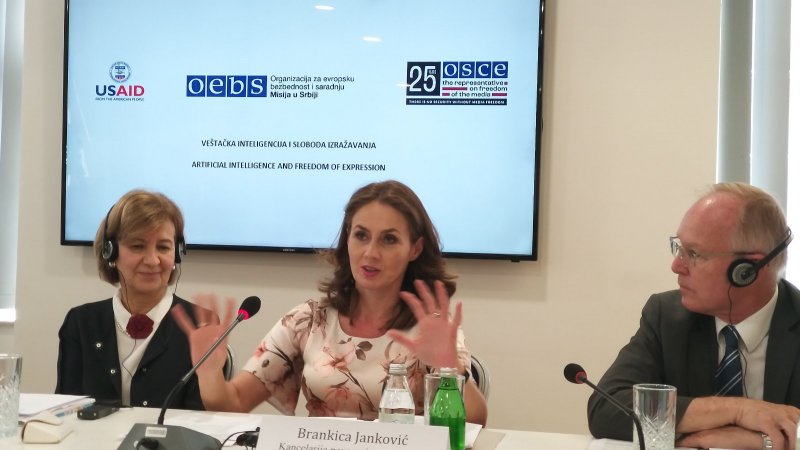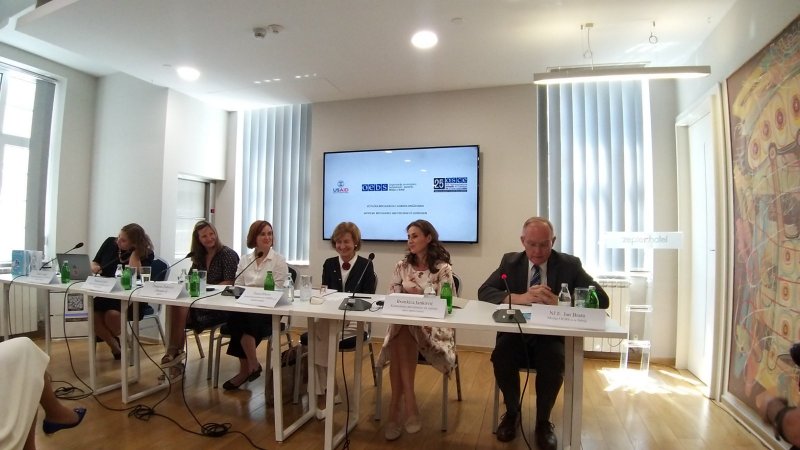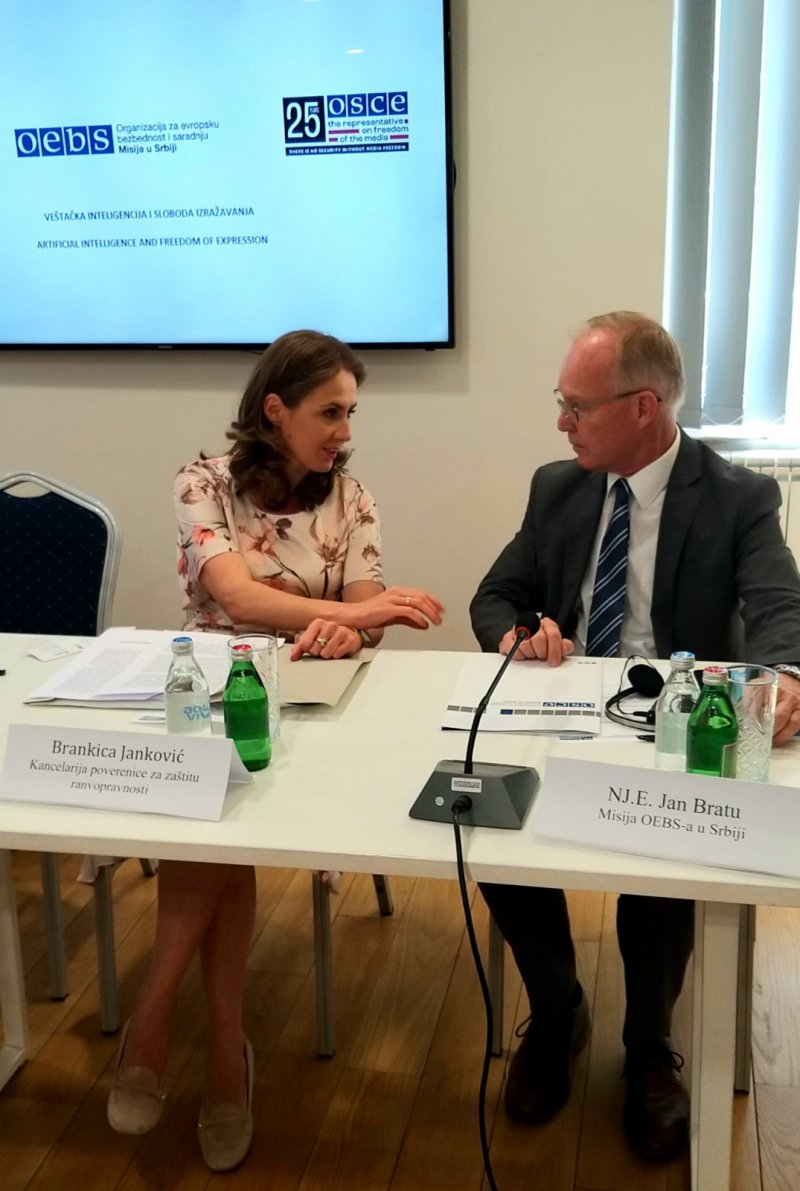Artificial intelligence can decisively affect the nature of social relations, primarily in the areas of work and employment, service provision, and procedures before public authorities, potentially causing discrimination, which is why a multi-stakeholder approach and joint monitoring of the situation is extremely important, said the Commissioner for Protection of Equality Brankica Janković at the conference “Impact of artificial intelligence on freedom of information, opinion and expression” organized by the OSCE mission in Serbia and the Office of the OSCE Representative on Freedom of the Media.
The Commissioner stated that the algorithms on which artificial intelligence is based actually represent opinions expressed through programming code, which means that any discrimination made through artificial intelligence is a product of subconscious or conscious attitudes of people who participate in the creation of the code itself. It is extremely important that the artificial intelligence development process is regulated and arranged, as well as that the risks are recognized in time and reacted to. Therefore, the key is cooperation, intensive monitoring of technological development, and timely reaction in the regulatory field as well. In addition, education about rights and data control must have a much greater coverage among the general population, with an emphasis on groups at increased risk of discrimination, but also among employees of public authorities.
Due to the fact that the topic of artificial intelligence attracts a lot of public attention and is a subject of controversy, the Commissioner has been monitoring the situation from the beginning and analyzing the dangers of discriminatory outcomes, which was a topic during the celebration of ten years of the Institution’s work, although so far there have been no such cases in complaints. It should be pointed out that the problem can be that the average citizen can hardly recognize whether discrimination has occurred, which is why the importance of the civil sector, which can significantly help in recognizing discrimination caused by artificial intelligence and providing support in filing complaints, should be emphasized.
The OSCE representative for freedom of the media, Teresa Ribeiro, addressed the conference and presented the recommendations from the manual for policy development “Artificial intelligence and freedom of expression in focus” with the aim of helping and providing guidance to states in solving this complex and challenging issue. Representatives of journalistic and media associations, the academic community, and the civil sector participated in the discussion.




